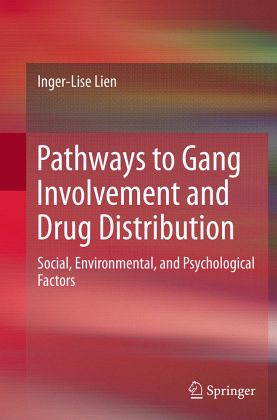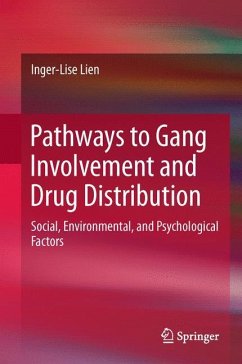
Pathways to Gang Involvement and Drug Distribution
Social, Environmental, and Psychological Factors
Versandkostenfrei!
Versandfertig in 6-10 Tagen
76,99 €
inkl. MwSt.
Weitere Ausgaben:

PAYBACK Punkte
38 °P sammeln!
This book uses a multi-methods study of incarcerated youths to examine the pathways to gang involvement, the drug distribution system and hierarchy within gangs, levels of traumatic stress and depression among gang-involved youths, and other mechanisms of control and retention within the system of gangs. Based on a study of young inmates in Norway, with international backgrounds including Africa, Pakistan, Middle East and Western Europe, the findings explained in this book are broadly applicable. It aims to create a picture of the entire system of gang membership, while revealing a research fr...
This book uses a multi-methods study of incarcerated youths to examine the pathways to gang involvement, the drug distribution system and hierarchy within gangs, levels of traumatic stress and depression among gang-involved youths, and other mechanisms of control and retention within the system of gangs. Based on a study of young inmates in Norway, with international backgrounds including Africa, Pakistan, Middle East and Western Europe, the findings explained in this book are broadly applicable. It aims to create a picture of the entire system of gang membership, while revealing a research framework that could be applied to other studies. Gang members were found in high levels to be suffering from depression and traumatic stress, and were often heavily indebted (financially and otherwise) to persons in the outside world. Owing money, violence and other threats, all make it difficult to leave the system, despite the pains they suffer within it. In order understand young peoples' life within the system, and its hold on them, and in order to reduce its continuation and growth, this important analysis helps researchers and policy makers, particularly those interested in juvenile justice, youth gangs, and drug trafficking understand its logic and identify its weak points and possible ways out.













